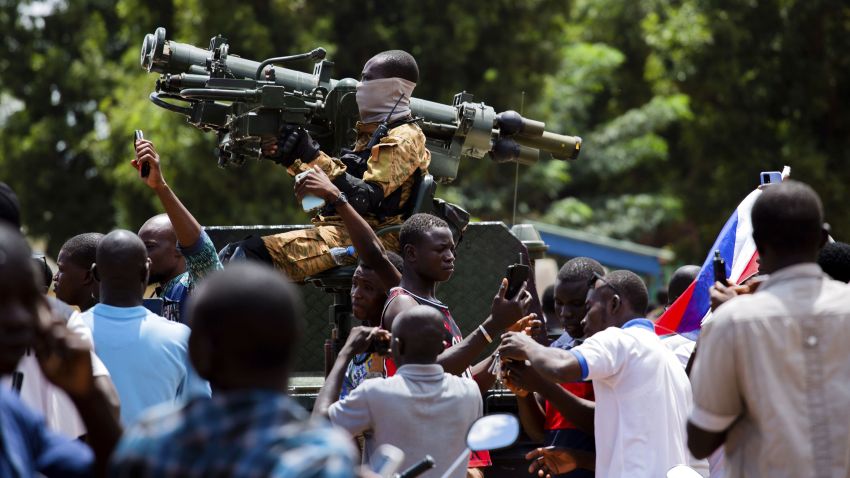OUAGADOUGOU, Burkina Faso—Two military strongmen sat positioned on either side of Burkina Faso’s capital, Ouagadougou, last weekend, flanked by armored vehicles and armed men. Gunshots sounded. Helicopters circled low over the city. Demonstrators set fires outside the walls of the French Embassy. Men sped by on motorcycles, while protesters waved Russian flags.
What had seemed to be a straightforward countercoup within the ranks of the ruling military junta last Friday brought the city to the brink of conflict for two days before an agreement was sealed. Lt. Col. Paul-Henri Sandaogo Damiba, who had seized power in a coup eight months ago, conceded to his rival, Capt. Ibrahim Traore, who took over as the president of the Movement for the Safeguard and Restoration, or MPSR, as the junta is known. Damiba subsequently flew, or rather fled, to neighboring Togo.
“It’s a sign of the extreme fragility of the country,” Rinaldo Dipagne, the deputy director of International Crisis Group’s Africa program, told World Politics Review in an interview. And given Burkina Faso’s deteriorating security situation, this coup “is happening in a much more dangerous context.”

